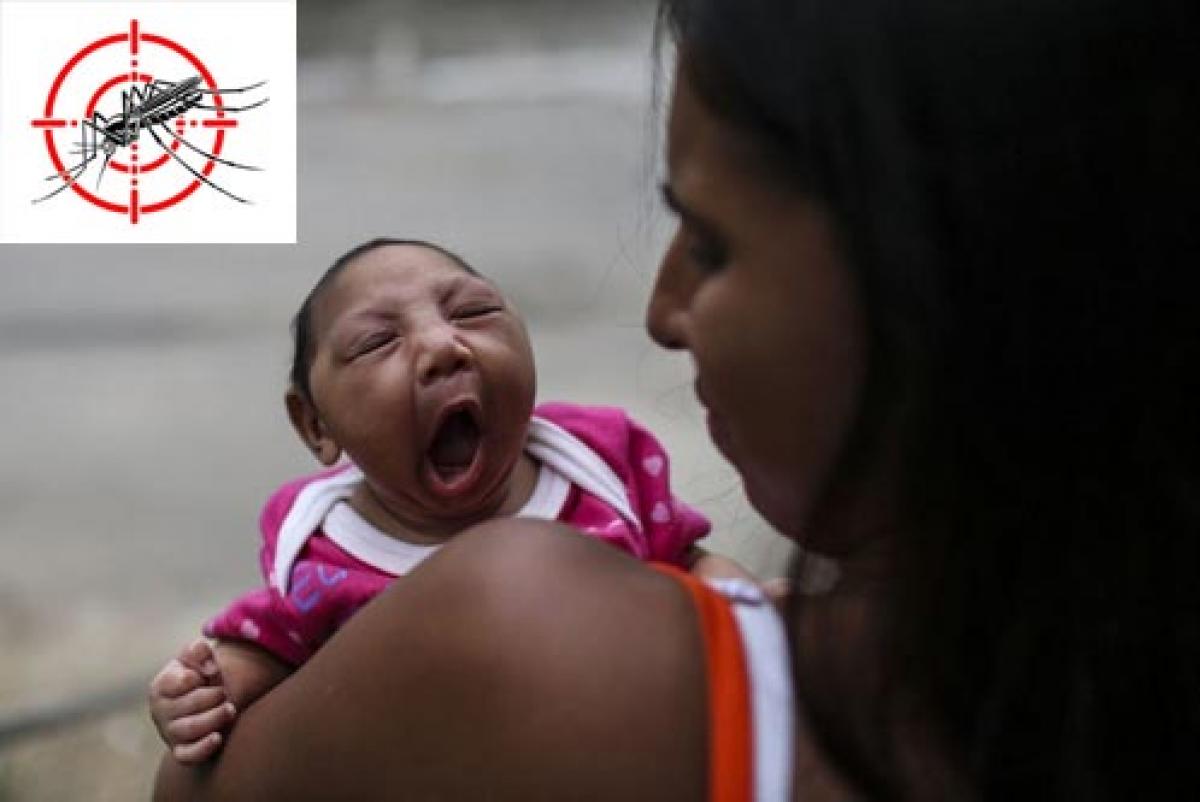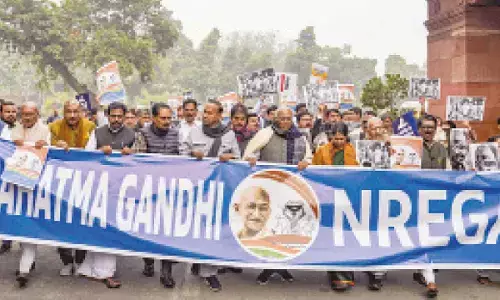Zika epidemic heading to India?

In India, the Zika virus -- which has no cure or vaccine -- was first found in Pune 64 years ago, as part of a survey that was testing immunity to Japanese and Russian varieties of a virus-borne brain infection called encephalitis, according to a forthcoming paper authored by World Health Organization (WHO) scientists.
A virulent version of the Zika virus that has swept the globe is headed for India, where an older, more benign strain is likely to be quietly residing within some Indians, possibly preparing genetic ground for a quick, new second-coming, experts have warned. Zika is linked to microcephaly, abnormally small heads and brains in foetuses.
In India, the Zika virus -- which has no cure or vaccine -- was first found in Pune 64 years ago, as part of a survey that was testing immunity to Japanese and Russian varieties of a virus-borne brain infection called encephalitis, according to a forthcoming paper authored by World Health Organization (WHO) scientists.
The paper comes soon after a study in Lancet which used travel patterns to predict that India -- where more than 67,000 air travellers arrive every year -- and four other countries (China, Philippines, Indonesia and Thailand) were most at risk for year-round transmission of the Zika virus. China has more people, but more people are at risk in India.
Zika was detected in humans in 1954 in Nigeria. It was reported from at least seven African countries and parts of Asia, including India, Malaysia, the Philippines, Thailand, Vietnam, and Indonesia, between 1951 and 1981. Between 2007 and 2014, it caused, as Prof Hotez, a scientist, put it, "explosive" outbreaks in Micronesia, French Polynesia, and Easter Island-South Pacific.
Then, in May 2015, a Brazilian national laboratory reported a native-or local-case of transmission. On February 1, 2016, WHO declared Zika a "public health emergency of international concern", requiring a coordinated international response.Why India is at risk
India does not know if the strain detected in Pune in 1952 has spread and if it has made Indians more susceptible.
India contains Zika's "disease ecology" – Aedes aegypti and Aedes albopictus mosquitoes, crowding, poverty, lack of sanitation and hygiene, travellers and visitors and warming that prolongs mosquito season. It will only take an infected person to travel to India and then be bitten by the tiger mosquito.Aedes aegypti is now found mainly in homes and other buildings, protected from monsoon winds and other factors that slowed its spread when it was a forest-dwelling creature. It is active during the day, and it is a master of evolution.
For India to be affected by the virus, it would need large populations of susceptible people living in close proximity to large populations of Aedes aegypti or Aedes albopictus mosquitoes.Aedes aegypti and dengue are prevalent wherever there has been a Zika outbreak in the Western hemisphere. Indonesia and India are currently experiencing the worst dengue problems in the world, said Hotez. "Based on that assumption, India is at risk," he said. In India's case, though, there are some big unknowns.
Since the symptoms of dengue, chikungunya and Zika virus infections are similar, and only laboratory tests can distinguish one from the other, it is possible that cases clinically diagnosed as dengue or chikungunya fevers could be Zika infections. The question is this: Has Zika not been present in India or has no one looked over the past 40 years? Chinkungunya wasn't supposed to be in India; then it showed upZika's cousin, chikungunya, first had a major outbreak across India-barring Kerala which had no Aedes aegypti mosquitoes then-between 1964 and 1967.
Chikungunya faded from public and scientific memory, and when it returned in 2002, "we were caught with our collective pants down", said T Jacob John, a retired virologist who, along with two colleagues, documented India's first HIV infection in 1986, and designed a national response.Biological events are unpredictable, but government responses should not be. However, said John, “civilized countries would err on the precautionary side rather than relying on luck as we Indians often do.”(In arrangement with IndiaSpend.org)
By:GBSNP Varma
















